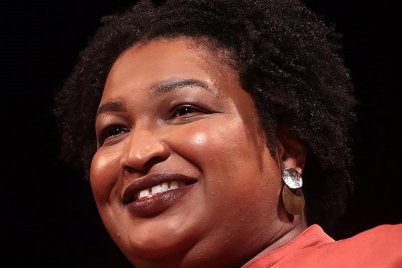Viola Davis is on her way to becoming an EGOT. [Photo: Gage Skidmore, CC BY-SA 3.0]
BY KEISHA BELL | Visionary Brief
Poor. African American. Female. What messages about her come to your mind?
Far too many times, the plot that introduces her character is one of heightened drama that (in some way) confirms a negative stereotype about her. Less often is she presented in the depth, beauty, and power of her true essence.
Hence, when she is seen in local communities, often her true introduction is missed. Her voice is easily dismissed until she boldly speaks.
Meet Viola Davis, the first African-American actress to be nominated for three Academy Awards. In fact, she has won an Oscar, an Emmy and a Tony.
By doing so, Davis has achieved the Triple Crown of Acting, an amazing accomplishment for anyone, especially an African-American female who was born during the Civil Rights Movement and who has lived in, according to her, “rat-infested and condemned” apartments and dysfunction.
Davis was born in St. Matthews, S.C., on Aug. 11, 1965. She graduated from Rhodes Island College in 1988, having majored in theater. Davis then graduated from the prestigious Juilliard School in 1993.
In 2015, she became the first black woman to win the Primetime Emmy Award for Outstanding Lead Actress in a Drama Series. She is also an accomplished producer, having won numerous awards and recognition yet not limiting her talents to acting.
Davis received a nomination for the Academy Award for Best Actress, won two Screen Actors Guild Awards, and won a Golden Globe Award for her lead role as a 1960s housemaid named Aibileen Clark in the 2011 movie “The Help.” Although this movie was a huge success at the box office and brought her increased accolades, Davis has recently expressed public regret in her role.
“I just felt that at the end of the day that it wasn’t the voices of the maids that were heard,” Davis said. “I know Aibileen. I know Minny. They’re my grandma. They’re my mom. And I know that if you do a movie where the whole premise is, I want to know what it feels like to work for white people and to bring up children in 1963; I want to hear how you really feel about it. I never heard that in the course of the movie.”

Keisha Bell
Davis’ mother was a maid in the 1960s. As she reflected, her connection to the storyline is very much real. When you know the truth, you know the lie. We all must remain conscious about the roles that people cast us and of which we agree to play. If you do not give voice to your story, someone else will surely profit from your silence. Walk in truth before the credits run.
Keisha Bell is an attorney, author, and public servant.







